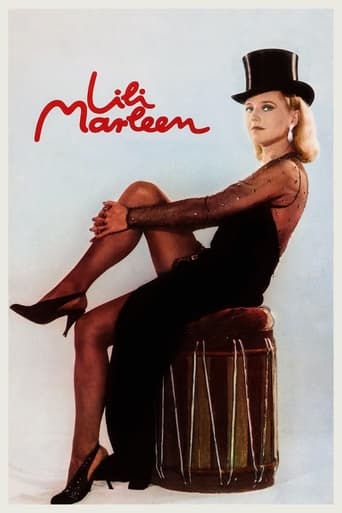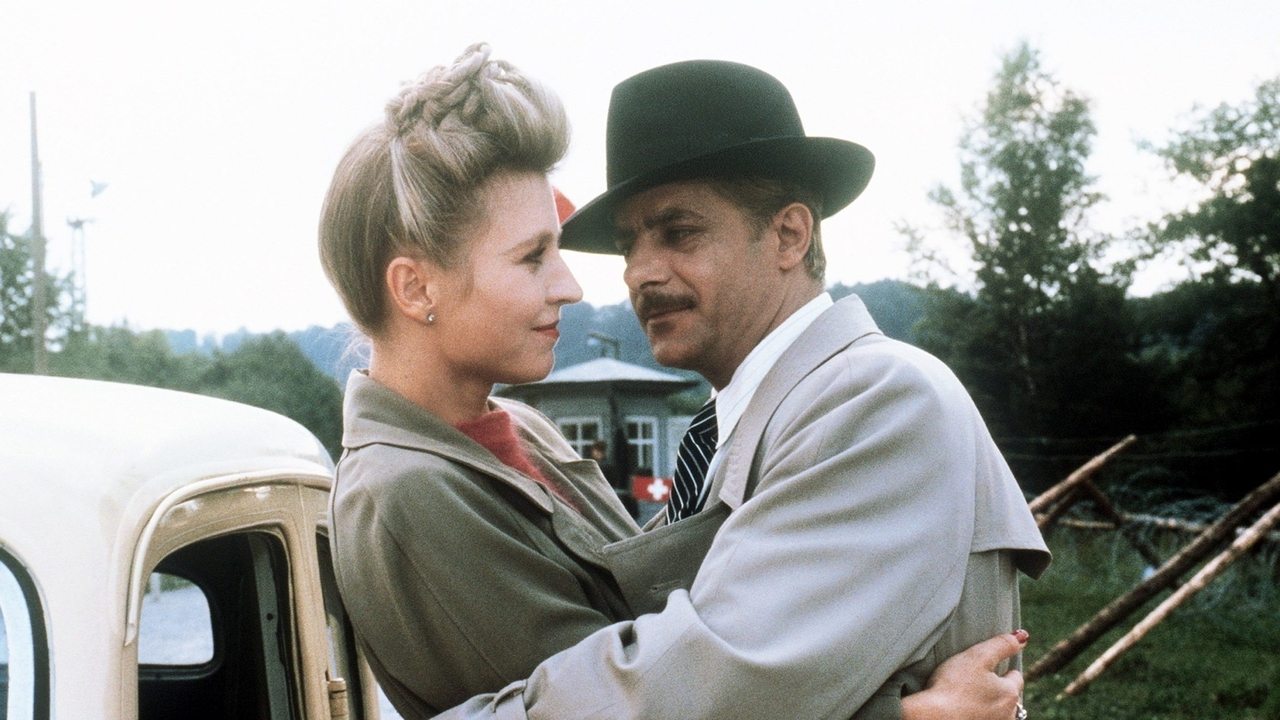mrp2
Where do I start? Per the title of this film I expected some degree of authenticity, in the end I was severally let down. This is not the story of Lale Andersen or the song Lili Marlene, rather it is a Hollywood (or pick your film making hub) story loosely based on some real life characters. I should have had a clue when I heard a heavy English accent giving the intro to the movie in German; the blood red text (title, artists) should have been the 2nd clue. The story line is contrived (Lale was not tricked out of Switzerland Rolf Liebermann's parents, there is no info that Liebermann helped smuggle Jews from Germany, the original song had been recorded outside of the control of the NS regime not while under control, the record played at the station was picked up in Vienna while a Lt. was there on leave, etc, etc) the costumes are poor and incorrect for the time frames (SS black uniforms used every where from border guards to staff positions, these went away from daily use once the war started, etc), the characters are stereo types (SA bullies in a club once they were essentially out of power). Don't waste your time.
hasosch
Many critics have felt offended that R.W. Fassbinder has portrayed both protagonist Wilkie and the Nazis in this movie in a human-like manner. Connoisseurs of other Fassbinder films, however, will realize that "Lili Marleen" (1981) belongs to Fassbinder's "women movies" like "The Marriage of Maria Braun" (1979) and "Lola" (1981). Fassbinder was convinced that "stories can be told much better with women than with men", because, according to Fassbinder, while men usually fulfill their determined roles in society, "women are capable of thinking in a dialectic manner". Dialectics, however, means that there is not only a thesis and its antithesis like usually in our black-and-white world, but a synthesis where the oppositions coincide. Moreover, dialectic means that because of the third instance of synthesis the absolute opposition of the difference between thesis and antithesis is abolished. Concretely speaking: Starting from a dialect point of view and portraying the fascist state, the underground fighters must necessarily use the basic means like the rulers do, and between offenders and victims there is thus a chiastic relation, so that every offender is also victim and every victim is also offender. Fassbinder has illustrated this abstract scheme, that transcends classical logic, in his play "The City, the Garbage and the Death" (1975) which was filmed by Daniel Schmid under the title "Shadow of Angels" (1976).Therefore, approaching an a priori controversial topic like Nazi Germany, in a dialectic manner, the depiction of this time in the form of a movie gets even more controversial, especially for people who cannot or do not want to see that our recognition of the world is by far not exhausted with a primitive light-switch schema, but needs the third instance of synthesis as controlling instance of its opposite members thesis and antithesis. The mutual relationship between offenders and victims has to scrutinized, since it is simply not true that the offenders are the bad ones and the victims the good ones. In a synthetic viewpoint, the bad ones participate on the goodness as the good ones participate on the badness. They are mutually related. In a world-view based on classical logic, a relation between good and bad cannot even been established, and in an ethics based on this insufficient system of logic, the bad conscience of the survivors of Nazi Germany, feeling (illogically enough) responsible for the deeds of their ancestors, exclude the possibility of a relationship between the two extremes and thus a synthesis in the form a new evaluation based on this relationship as well. From Fassbinder's dialectic viewpoint, it follows that neither Lili Marleen nor Lola nor Maria Braun can be condemned for their "misuse" of the ruling system for their private purposes, because they don't misuse them, they just use them. In the opposite, since victims must repeat the actions of the offenders as the offenders must repeat the actions of the victims, because "good" and "bad" are no longer simple mirror images of one another like in two-valued logic, their strategies are legitimated by the chiastic structure of a logic that describes our world, that is not black and white at all, much better than a black-and-white logic.
tomlin05
I consider this movie a masterpiece, but it took me at least 4 o 5 times to see it, so as to realize what a great movie it was. First, it describes a face of WW2 that we don't usually see in Hollywood movies. In particular, German soldiers, army and the Nazi government are shown more "humanized". One of the facts that impressed me most was the mention, by the end of the movie, of a murder that took place in a forest in the last 20's... that forest is the place where the final chapters of Berlin Alexanderplatz take place: those are the woods where Reinhold kills Mieze. Another clue for those who like the details, is the representation of doors. Fassbinder is obsessed with the changes in people each time they walk across a door, or a door is opened. Many doors are shown in the screen, opened and closed. And the characters change in their personality, their acts, etc any time that happens. Have you noticed that?
haddock
I am terribly sorry, I know that Faßbinder still is called one of the greatest directors in post-war Germany and that most of his films are considered "master-pieces", but when I see "Lili Marleen" today, in 2004, I wonder what everyone is up and away about this movie! The acting is simply terrible - Hanna Schygulla is all the smiling like an idiot! -, the changings between Nazi-glamour and battlefields are ridiculous, the whole film looks as if it was made within two days in an attic. Probably it was exactly that way and many people seem to take this for "real art", but for me this movie is simply bad & cheap. Compare this to Viscontis "La Caduta degli Dei" and tell me again that "Lili Marleen" is a good movie...


 AD
AD



